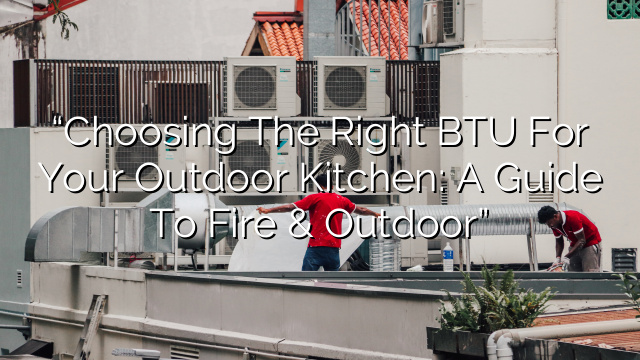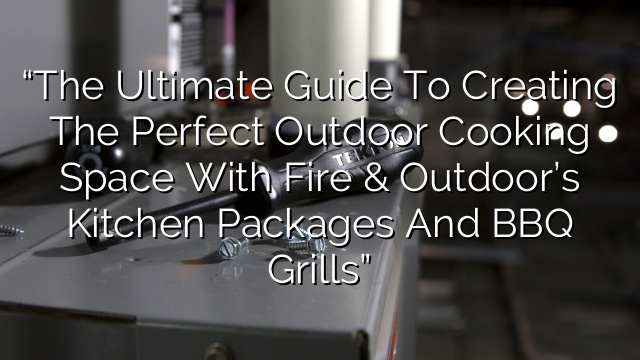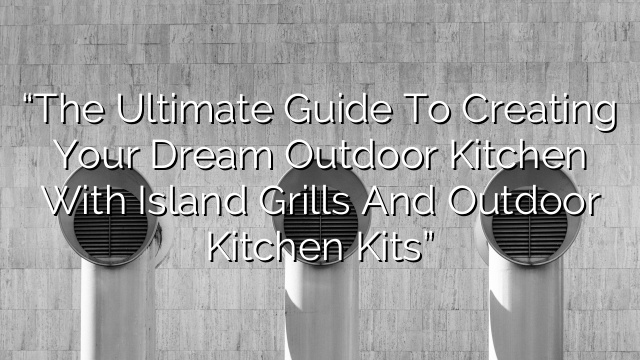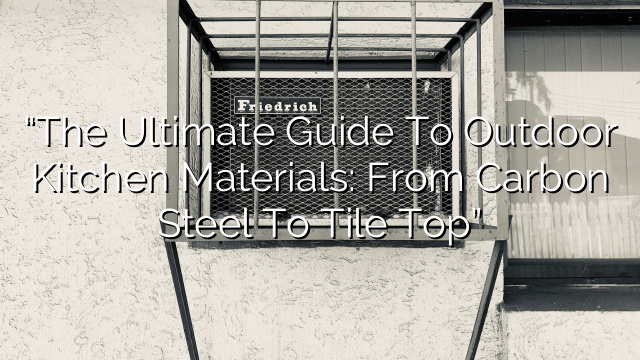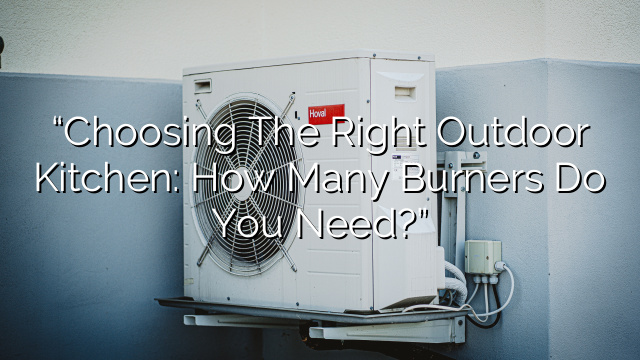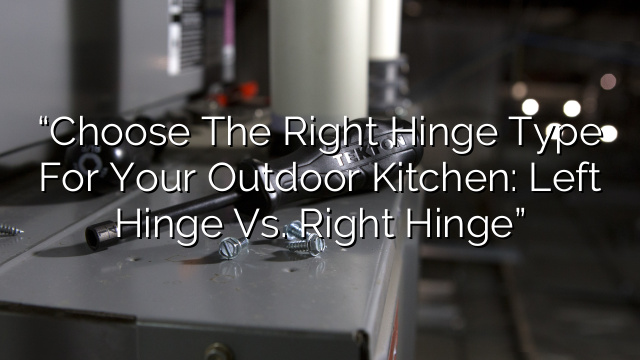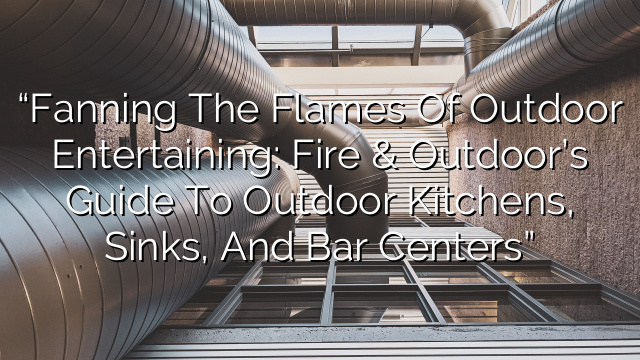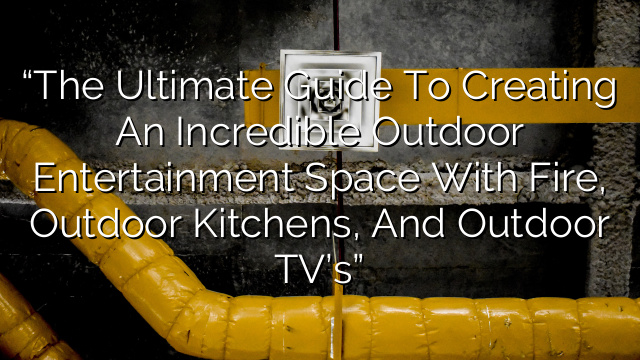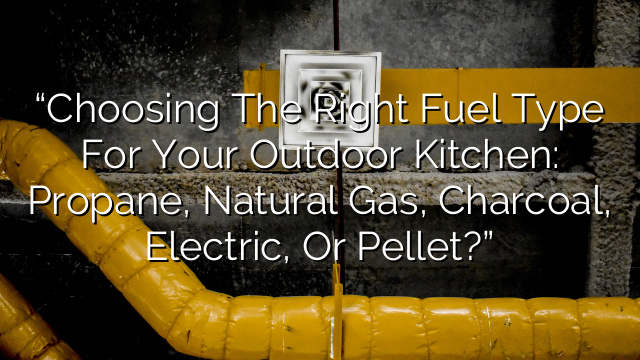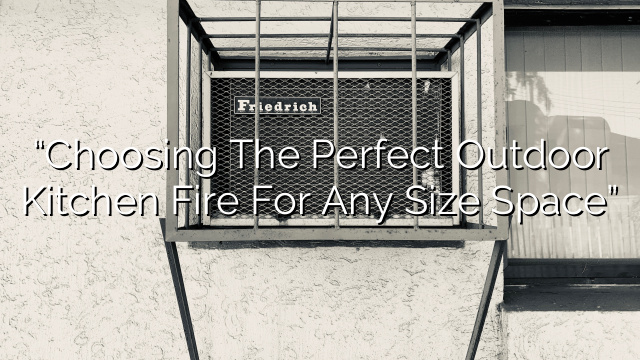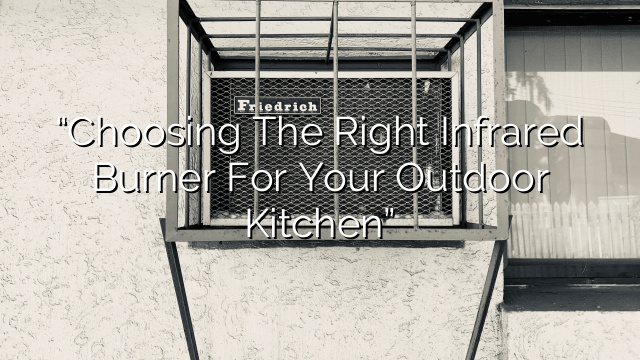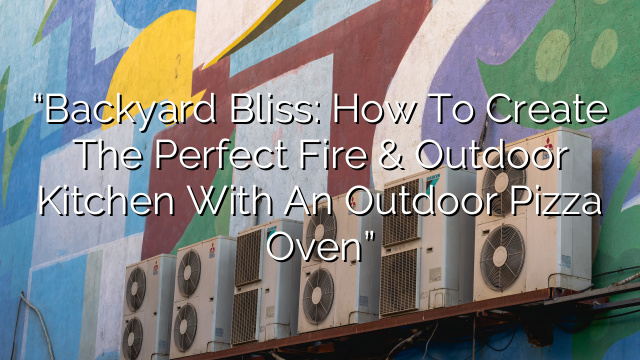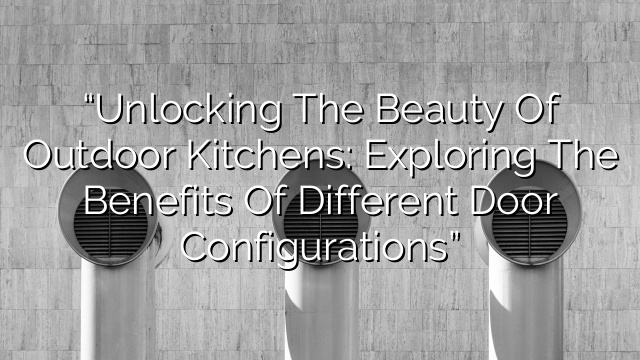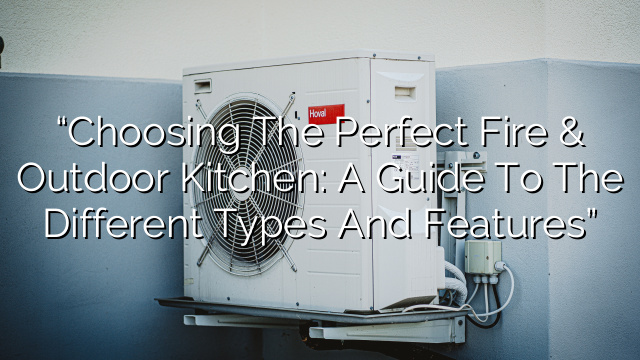Choosing the Right BTU for Your Outdoor Kitchen: A Guide to Fire & Outdoor
When it comes to creating the perfect outdoor kitchen, one of the most important factors to consider is the BTU (British Thermal Unit) rating of your grill or burner. The BTU rating determines the amount of heat a grill or burner can produce, and choosing the right BTU for your outdoor kitchen is essential for achieving optimal cooking performance. In this guide, we will take a closer look at BTUs and help you understand how to choose the right BTU for your outdoor kitchen.
Understanding BTUs
BTU stands for “British Thermal Unit” and is a measurement of heat energy. In the context of outdoor kitchens, BTUs are used to measure the heat output of grills and burners. The higher the BTU rating, the more heat the grill or burner can produce. However, it is important to note that a high BTU rating does not necessarily equate to better cooking performance. The BTU rating should be chosen based on the size and use of your outdoor kitchen.
Factors to Consider
When determining the right BTU for your outdoor kitchen, there are several factors to consider:
- Size of Outdoor Kitchen: The size of your outdoor kitchen plays a significant role in determining the appropriate BTU rating. Larger kitchens may require higher BTU ratings to ensure even heat distribution and quick cooking times.
- Type of Cooking: Consider the type of cooking you will be doing in your outdoor kitchen. If you plan on grilling large cuts of meat or cooking multiple dishes simultaneously, a higher BTU rating may be necessary to accommodate your needs.
- Insulation and Ventilation: The insulation and ventilation of your outdoor kitchen are crucial for maintaining heat and airflow. If your kitchen is well-insulated and has good ventilation, you may be able to get away with a lower BTU rating.
- Weather Conditions: Consider the average weather conditions in your area. If you live in a colder climate or frequently entertain during colder months, a higher BTU rating may be needed to combat the lower ambient temperature.
- Personal Preference: Ultimately, your personal preference and cooking style will also play a role in determining the right BTU for your outdoor kitchen. If you prefer quick searing and high-temperature grilling, a higher BTU rating may be desirable.
Choosing the Right BTU Range
Now that you understand the factors to consider when choosing the right BTU for your outdoor kitchen, let’s take a look at the various BTU ranges available and their recommended uses:
- 0 – 10,999 BTUs: This BTU range is suitable for small portable grills and burners. It is ideal for casual grilling and cooking simple dishes.
- 30,000 – 39,999 BTUs: This BTU range is suitable for medium-sized grills and burners. It is ideal for cooking for small to medium-sized gatherings and accommodating various types of cooking.
- 40,000 – 49,999 BTUs: This BTU range is suitable for larger grills and burners. It is ideal for cooking for larger gatherings and accommodating a wide range of cooking needs.
- 50,000 – 59,999 BTUs: This BTU range is suitable for high-capacity grills and burners. It is ideal for cooking for large parties and events, as well as for professional chefs.
- 60,000 – 74,999 BTUs: This BTU range is suitable for high-end grills and burners. It is ideal for serious grilling enthusiasts and professionals who require precise heat control and high-performance cooking.
- 75,000 – 99,999 BTUs: This BTU range is suitable for commercial-grade grills and burners. It is ideal for restaurants, catering businesses, and large-scale cooking operations.
- 100,000 and Up BTUs: This BTU range is suitable for industrial-grade grills and burners. It is ideal for large-scale cooking operations, such as industrial kitchens, food processing plants, and outdoor events.
FAQs
- Q: How do I calculate the BTU required for my outdoor kitchen?
- A: To calculate the BTU required for your outdoor kitchen, multiply the square footage of your cooking area by 100. This will give you an estimate of the BTU output needed to adequately heat your space.
- Q: Can I use a grill with a higher BTU rating than recommended?
- A: While it is generally safe to use a grill with a higher BTU rating than recommended, it may lead to inefficient fuel consumption and uneven heat distribution. It is best to choose a grill with a BTU rating that matches your specific needs.
- Q: Are higher BTUs always better?
- A: Not necessarily. Higher BTUs can be advantageous for quick searing and high-temperature cooking, but they may not always result in better cooking performance. Factors such as grill design, heat distribution, and fuel efficiency also play a role in overall cooking performance.
- Q: Can I convert BTUs to Watts?
- A: Yes, you can convert BTUs to Watts by multiplying the BTU value by 0.2931. This will give you the approximate Wattage equivalent of the BTU rating.
Choosing the right BTU for your outdoor kitchen is essential for achieving optimal cooking performance. Consider the size of your kitchen, the type of cooking you will be doing, insulation and ventilation, weather conditions, and personal preference. By understanding the various BTU ranges available and their recommended uses, you can make an informed decision and create the outdoor kitchen of your dreams. Happy grilling!

